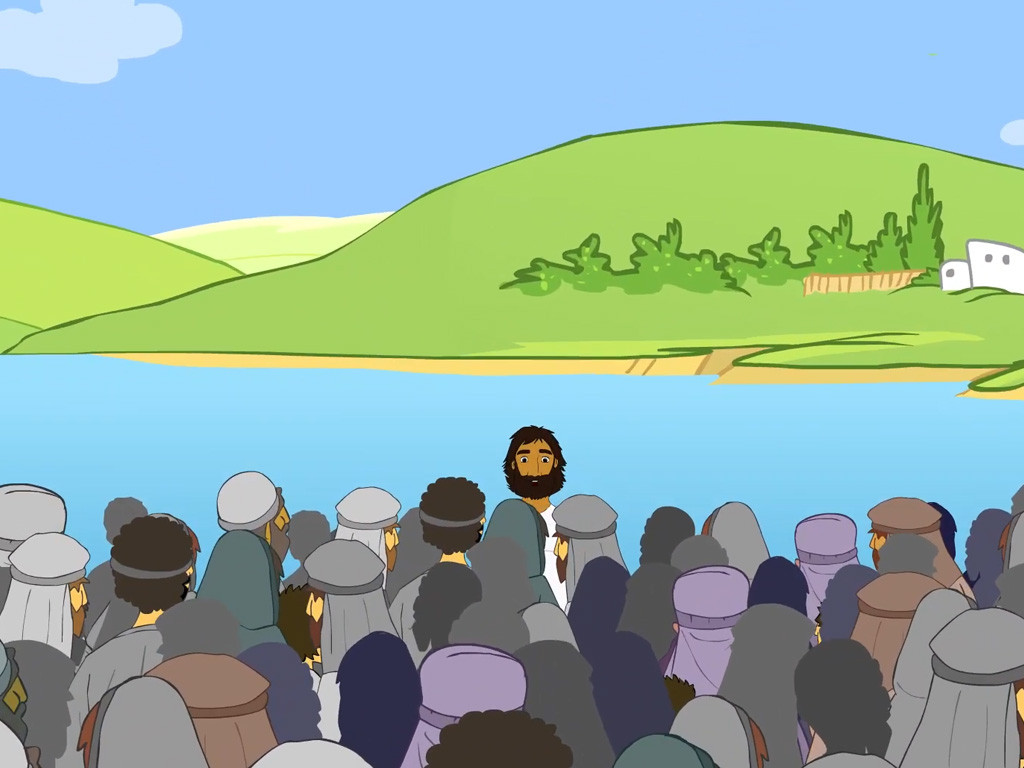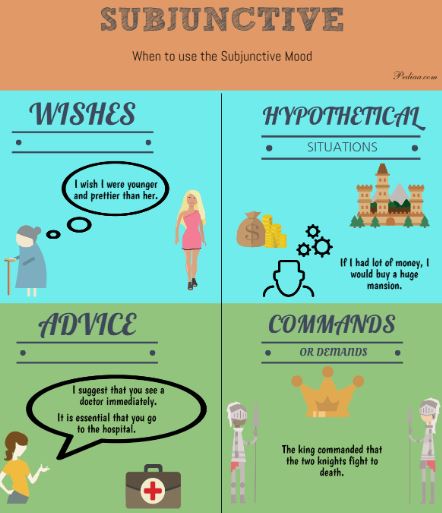Let sentences connected!
He replied, “Because you have so little faith. I tell you the truth, if you have faith as small as a mustard seed, you can say to this mountain, ‘Move from here to there’ and it will move. Nothing will be impossible for you.” – Mattew 17:20
The Bible contains numerous teachings that can serve as guidelines for our lives. However, there is one word that is especially emphasized in the New Testament. That word is “Perseverance.” Why does this word, which does not appear at all in the Old Testament, frequently appear in the New Testament?
Paul, who wrote 13 books of the New Testament, left the following record in Romans:
“Not only so, but we also rejoice in our sufferings, because we know that suffering produces perseverance; perseverance, character; and character, hope.” (Romans 5:3-4)
One of Jesus’s disciples, who wrote James, provides a more specific reason for the need to persevere in James 1:4.
“Perseverance must finish its work so that you may be mature and complete, not lacking anything. (James 1:4)”
Perseverance is rooted in the hope and belief that its end will be sweet. Faith allows one to endure everything. Among such faith, the most powerful is the belief that someone is helping us. In the above examples, Jesus is reproaching us for our lack of such faith.

“Could the real difference between animals and humans lie in the ability to imagine what doesn’t exist as existing and to assume what is not true as true? Imagining having faith as small as a mustard seed is not an easy task either. In school, the method of expressing desires for things that don’t exist or imagining the impossible is taught as the subjunctive mood. Before we delve into our main focus, the ‘if’ clause, let’s take a moment to look at the broader picture of the subjunctive mood.
Subjunctive Mood
The English expression corresponding to the subjunctive mood is called ‘Subjunctive Mood.’ This term doesn’t inherently imply assumptions or a sense of law. It is more akin to a mood influenced by verb conjugation rather than an actual law or rule. English moods are broadly divided into three types: indicative mood, imperative mood, and subjunctive mood. Just like how verbs change with different tenses and persons, the mood must also adapt verbs appropriately to suit the intended situation.
Even native speakers comment that sentences in the subjunctive mood can sound archaic or overly formal, indicating its decreasing usage. However, we still come across writings expressed in the subjunctive mood, including sentences that contain ‘if’ clauses. Before we examine the grammatical aspects related to this, let’s look at various examples of biblical passages expressed in this mood.

- I wish:
“I wish that all men were as I am. But each man has his own gift from God, one in this way and another in that way.” – 1 Corinthians 7:7
“I have come to bring fire on the earth, and how I wish it were already kindled!” – Luke 12:49
“I know your deeds, that you are neither cold nor hot. I wish you were either one or the other!” – Revelation 3:15 - I propose that (commands or suggestions): command, order, suggest, recommend, ask, insist, and demand
“And ordered that the men of Judah be taught this lament of the bow (it is written in the Book of Jashar).” – 2 Samuel 1:18 - It is imperative that (advice): important, necessary, imperative, crucial, essential
“Since these things are undeniable, it is imperative that you be calm and do nothing recklessly.” (AFV: A Faithful Version) – Acts 19:36
In a more popular English Bible version, NIV (New International Version), it is written as:
“Therefore, since these facts are undeniable, you ought to be quiet and not do anything rash.” – Acts 19:36 - If clause:
“But if I were you, I would appeal to God; I would lay my cause before him.” – Job 5:18
These examples of the Subjunctive Mood involve expressions related to unreal situations, wishes, desires, or expectations. They share a common feature where verb usage is not typical: specifically, the present form of the verb ‘be’ is always ‘be,’ and the past form of ‘be’ is always ‘were.’ This illustrates some general principles of the Subjunctive Mood:
- The tense used in the subjunctive mood is one step back compared to that in the indicative mood.
- The present form uses the base form of the verb without changes for number or person, thus is, are, am are replaced with ‘be.’
- When using a past form, ‘were’ is used instead of ‘was.’
Now, let’s examine the ‘if’ clauses in the context of the Subjunctive Mood verb usage outlined above.
If Clauses
‘If’ is a conjunction, one of the eight parts of speech which include nouns, pronouns, verbs, adverbs, adjectives, prepositions, conjunctions, and interjections. The conjunction ‘if’ leads a dependent clause, meaning ‘if’ or ‘when,’ similar to how ‘when’ leads a temporal adverbial clause. However, ‘if’ often includes hypothetical situations, making it somewhat special. Therefore, adverbial clauses led by ‘if’ are called conditional clauses, and sentences containing ‘if’ are referred to as conditional sentences. Thus, ‘if’ represents the condition, and the main clause represents the result.

if you have faith, I tell you the truth,
In Korean schools, ‘if’ clauses are categorized based on the verb tense in the ‘if’ clause into the subjunctive present, past, and past perfect. However, in English-speaking regions, they are typically classified into zero conditional, first conditional, second conditional, third conditional, and mixed conditional based on the verb tense and meaning. These can be thought of in terms of their closeness to reality: zero is real, first is a possible reality, second is nearly impossible, and third is an impossible hypothesis.
| Conditional Type | Usage | ‘If’ Clause Verb Tense | Main Clause Verb Tense |
|---|---|---|---|
| Zero | General facts | Simple present | Simple present |
| First | Possible condition and result | Simple present | Simple future |
| Second | Hypothetical condition | Simple past | Conditional present |
| Third | Unreal past condition | Past perfect | Conditional perfect |
As the table illustrates, there is a principle regarding the tenses in subjunctive mood used in ‘if’ clauses: the tense moves back one level because ‘if’ clauses are also a type of Subjunctive Mood. Here’s a summary:
Zero conditional: Though it is a conditional clause, the hypothesis is realistic and entirely possible (not Subjunctive Mood).
If + present tense, present tense
First type: A hypothesis about the future or speculation about reality: Present tense subjunctive (Subjunctive Mood)
If + present tense, will + base form of the verb
Second type: A hypothesis contrary to the present: Past tense subjunctive (Subjunctive Mood)
If + past tense, would + base form of the verb
Third type: A hypothesis contrary to the past: Past tense subjunctive (Subjunctive Mood)
If + past participle, would have + past participle
0 Conditional:
The zero conditional is used when the time being referred to is now or always, and the situation is realistic and possible. Therefore, both the conditional and result clauses use the simple present tense. Since this is a statement of reality, there is no change in tense, and therefore it is not expressed in the Subjunctive Mood. Thus, the “if” in these types of conditional sentences can often be replaced with the word “when” without changing the meaning significantly.
“If + present tense, present tense”
“If anyone forces you to go one mile, go with them two miles.” – Matthew 5:41
The above sentence can grammatically be changed to “When anyone forces you to go one mile, go with them two miles” without losing its meaning.
Type 1 Conditional:
The first type conditional is used to express a hypothesis about the future or a hope that if something currently not true were true, the future could be different. Therefore, the main clause uses a future tense verb, and the ‘if’ clause uses a present tense verb. If something is to exist in the future, doesn’t the present situation need to change?
“If + present tense, will + base form of the verb”
“If you have faith as small as a mustard seed, you can say to this mountain, ‘Move from here to there,’ and it will move.” Mattew 17:20)
To move the mountain, faith must first exist now. And having such faith is not impossible. Therefore, this belongs to the first type of conditional clauses, where the verb in the ‘if’ clause is in the present tense, and the verb in the main clause is in the future tense. The biblical phrase ‘if you have faith’ implies ‘if you currently have faith, which you do not.’
Type 2 Conditional:
The second type conditional is used in cases where the current or future situation is unreal. Naturally, it represents a situation opposite to reality. Therefore, even if the situation is current, the ‘if’ clause uses a past tense verb. This makes sense since a change in the past would have resulted in a different current situation.
“If + past tense, would + base form of the verb”
“If you are the Christ,” they said, “tell us.” Jesus answered, “If I tell you, you will not believe me, and if I asked you, you would not answer.” – Luke 22:67-68
In this passage, various ‘if’ clauses appear. However, we focus on the expression, “If I asked you, you would not answer.”
The auxiliary verb “would,” although the past form of “will,” is used in the indicative mood to express expectations, hopes, regrets, or conjectures. It conveys a feeling more akin to “would have done” rather than just “did.” Therefore, it can naturally follow an “if… then” construction regardless of the tense. Particularly in the subjunctive past, it’s important to note that the verb “be” should always be used as “were,” regardless of the subject, when a non-existent condition is hypothesized. The tense steps back because it involves hypothesizing something non-existent.
“If he were on earth, he would not be a priest, for there are already men who offer the gifts prescribed by the law.” – Hebrews 8:4
Here, “he” refers to Jesus, implying that if Jesus were still on earth, He would not be serving as a priest because that role was already filled according to the law. This clearly discusses a hypothetical situation contrary to reality. It’s also worth noting that when hypothesizing about something utterly implausible, the construction “were to” is used.
“If one were to give all the wealth of his house for love, it would be utterly scorned.” – Song of Solomon 8:7
Not every subjunctive expression needs to use “if”; sometimes “if” can be omitted, or other forms can express the subjunctive mood, such as “I wish.” The tense follows the same rules as previously explained for general subjunctive mood expressions.
“I know your deeds, that you are neither cold nor hot. I wish you were either one or the other!” – Revelation 3:35
This expresses a wish for a current fact to be the opposite, hence the use of the past form “were.” If the situation had changed in the past, we would see that change today. An example of a subjunctive expression without “if” from Hosea 8:7:
“Were it to yield grain, foreigners would swallow it up.” – Hosea 8:7)
“Were it to yield grain” means “if it were to yield grain,” where “if” is omitted, and “were to” is used for hypothesizing an improbable event—here, implying that even if the crop were to grow, it would be consumed by foreigners.
Type 3 Conditional:
Type 3 conditional refers to past situations and discusses circumstances that are contrary to reality. It’s the most hypothetical situation, commonly called the past perfect subjunctive in educational contexts. In such cases, English uses a past perfect verb in the conditional clause and a conditional perfect in the result clause. This type assumes the opposite of what happened in the past, thus requiring a tense that is one step further back in the past—past perfect.
“If + past participle, would(could) have + past participle”
“This man could have been set free if he had not appealed to Caesar.” – Acts 26:32
This passage refers to Paul, who had appealed to Caesar. Despite this fact, the phrase “if he had not appealed” discusses a hypothetical opposite scenario. The use of the past perfect tense reflects a deeper past, and the main clause, “This man could have been set free,” expresses a possibility that did not occur.
Other Expressions of the Subjunctive:
Other conjunctions like “as if,” “as though,” “unless,” “providing” or “provided,” “suppose” or “supposing,” “though,” and “even though” also create expressions similar to conditional statements.
“He will speak to the people for you, and it will be as if he were your mouth and as if you were God to him.” – Exodus 4:16
“How foolish! What you sow does not come to life unless it dies.” – 1 Corinthians 15:36
“It is fine to be zealous, provided the purpose is good, and to be so always and not just when I am with you.” – Galatians 4:18


답글 남기기